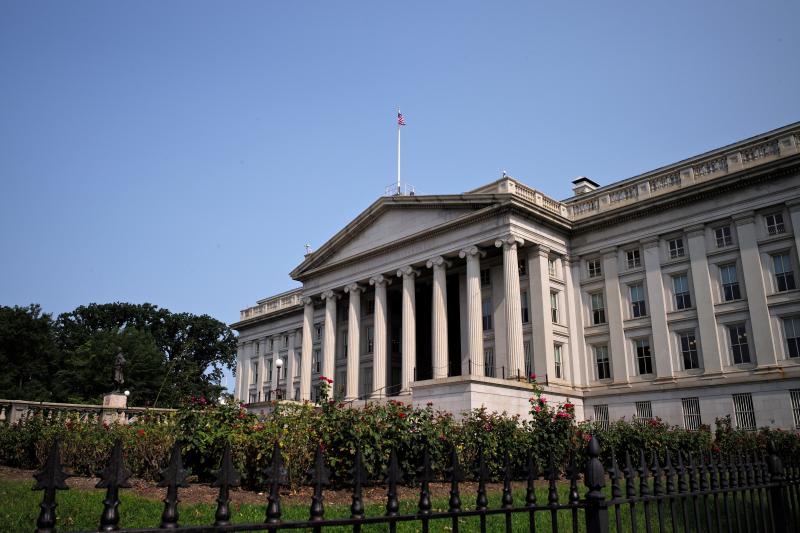
Senator Mike Rounds recently introduced his Financial Stability Oversight Council Improvement Act of 2019, which would reform the process federal financial regulators use for assessing financial risk. S. 603 enjoys bipartisan support from Senators Krysten Sinema (D-A.Z.), Doug Jones (D-A.L.) and Thom Tillis (R-N.C.) joining the efforts to provide greater certainty for non-bank financial institutions subject to FSOC oversight.
The Council was created from Dodd-Frank with the purpose of harmonizing communication and oversight between multiple federal agencies, state-based regulatory bodies and an independent insurance expert. FSOC is chaired by the Treasury Secretary and is comprised of 15 members, 10 with voting power and five serving as nonvoting members.
The Council has the ability to designate certain bank holding companies, non-bank institutions and financial market utilities as systemically important financial institutions. If a SIFI designation is made, the financial institution is subject to enhanced prudential oversight by the Federal Reserve Board.
In the case of S. 603, the legislation stipulates that FSOC must consider other factors first, before voting to designate a non-bank financial institution as a SIFI. These factors include first working in consultation with the non-bank institution and their primary financial regulator, whether it be federal like the Securities and Exchange Commission or state-based regulator like insurance commissioners. The Council must first work with and allow the lead regulator to propose a different oversight approach and allow the non-bank institution to propose its own solution for the Council to consider. If the Council is not satisfied with these approaches, only then can the Council designate the institution as a SIFI, reserving the SIFI designation as a last resort option after other options for correcting the institutions best practices are exhausted.
The Senate Banking Committee held a hearing on the FSOC non-bank designation on March 14th. American Action Forum’s Douglas Holtz-Eakin said the FSOC Improvement Act “would provide primary regulators a beneficial step in the process and create a chance for non-banks to know their risks to remediate and offramp.” S. 603 provides greater certainty and transparency for non-bank financial institutions to address concerns before the heavy hand of regulation is imposed.
ATR President Grover Norquist said:
“I applaud Senator Rounds for creating a bipartisan coalition to address some of the issues associated with the current process of SIFI designation. Without tearing down any framework of the existing process, it is important to consider regulation that provides certainty and transparency for institutions, instead of immediately throwing the book at them and S. 603 does just that. Thank you Senator Rounds for your leadership on this important reform. I encourage other Senators to support this legislation.”
Click here to view the letter or see below:
April 29, 2019
Dear Senator Rounds:
I write in support of your legislation, the Financial Stability Oversight Council Improvement Act of 2019. Your legislation would require the Council to consider alternative approaches before labeling a non-bank financial institution as a systemically important financial institution. I applaud Senators Jones, Sinema and Tillis for cosponsoring S. 603 as their participation demonstrates how bipartisanship can achieve smart and transparent solutions for institutions subject to FSOC oversight. I encourage additional Senators to join their efforts.
The Financial Stability Oversight Council was established by Dodd-Frank with the purpose of harmonizing communication and oversight between multiple federal agencies, state-based regulatory bodies and an independent insurance expert and is chaired by the Treasury Secretary. The Council has the ability to designate certain bank holding companies, non-bank institutions and financial market utilities as systemically important financial institutions. The two most prominent factors for SIFI designation include an institution’s leverage and interconnectedness with other SIFI institutions.
If a bank holding company carries the label of SIFI, they are subject to enhanced regulatory requirements administered by the Federal Reserve, which oversees deposit-accepting institutions. For non-bank institutions and financial market utilities, carrying the SIFI designation creates additional regulatory barriers administered by the Federal Reserve but excludes bank specific regulations like the Comprehensive Capital Analysis Review. In other words, an investment institution helping savers plan for retirement that does not engage in banking activity is subject to Federal Reserve oversight even if the Federal Reserve had no jurisdiction originally.
Your legislation would provide much needed certainty for non-bank institutions by allowing them to work with regulators to strengthen their institutional best practices, leaving SIFI designation as a last resort. S. 603 provides an important avenue for much needed clarity in the larger process of creating transparency for non-bank financial institutions subject to FSOC oversight. I appreciate your leadership on this issue and commend you for creating a bipartisan path towards a solution that helps improve the SIFI designation process.
Sincerely,
Grover G. Norquist
President, Americans for Tax Reform

